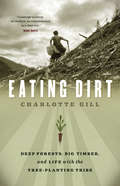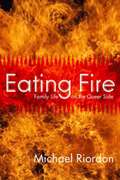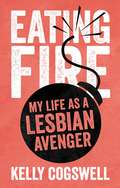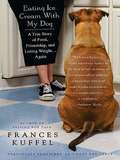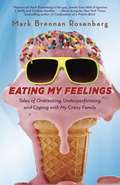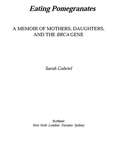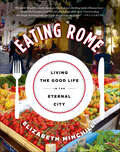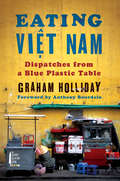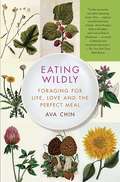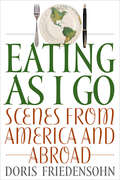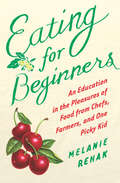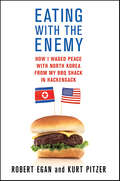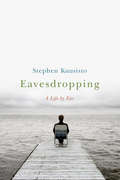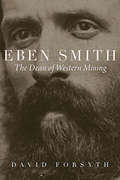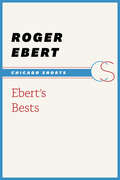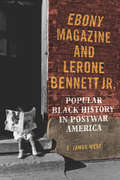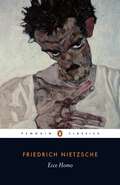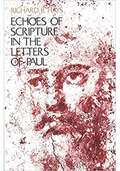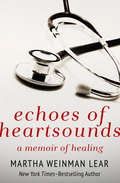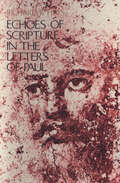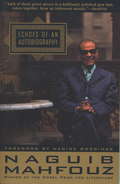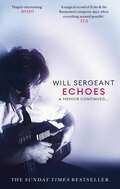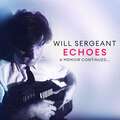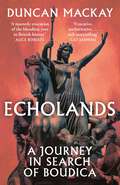- Table View
- List View
Eating Dirt
by Charlotte Gill* Winner of the BC National Award for Non-Fiction* Nominated for the Charles Taylor Prize for Literary Non-Fiction and the 2011 Hilary Weston Writer's Trust Award.During Charlotte Gill's 20 years working as a tree planter she encountered hundreds of clear-cuts, each one a collision site between human civilization and the natural world, a complicated landscape presenting geographic evidence of our appetites. Charged with sowing the new forest in these clear-cuts, tree planters are a tribe caught between the stumps and the virgin timber, between environmentalists and loggers.In Eating Dirt, Gill offers up a slice of tree-planting life in all of its soggy, gritty exuberance while questioning the ability of conifer plantations to replace original forests, which evolved over millennia into intricate, complex ecosystems. Among other topics, she also touches on the boom-and-bust history of logging and the versatility of wood, from which we have devised countless creations as diverse as textiles and airplane parts. She also eloquently evokes the wonder of trees, our slowest-growing "renewable" resource and joyously celebrates the priceless value of forests and the ancient, ever-changing relationship between humans and trees.
Eating Fire: Family Life on the Queer Side
by Michael RiordonEating Fire follows in the steps of Riordon’s popular 1996 book Out our way, on gay and lesbian life in the country (BTL, 1996). This new set of tales examines the range in living patterns and relationships among queer families across Canada. Eating Fire illuminates the rich diversity in which people negotiate their personal and public identities. As in all his writing and radio work, Riordon brings to this book a subtle, direct, and vivid style. For Eating Fire he travelled widely, engaging in significant new research and speaking with hundreds of fascinating people. The resulting book is wanted and needed in classrooms, within queer communities, and among everyone hungry for knowledge about the wide range of Canadian families.
Eating Fire: My Life as a Lesbian Avenger
by Kelly J. CogswellWhen Kelly Cogswell plunged into New York&’s East Village in 1992, she had just come out. An ex–Southern Baptist born in Kentucky, she was camping in an Avenue B loft, scribbling poems, and playing in an underground band, trying to figure out her next move. A couple of months later she was consumed by the Lesbian Avengers, instigating direct action campaigns, battling cops on Fifth Avenue, mobilizing 20,000 dykes for a march on Washington, D.C., and eating fire—literally—in front of the White House.At once streetwise and wistful, Eating Fire is a witty and urgent coming-of-age memoir spanning two decades, from the Culture War of the early 1990s to the War on Terror. Cogswell&’s story is an engaging blend of picaresque adventure, how-to activist handbook, and rigorous inquiry into questions of identity, resistance, and citizenship. It is also a compelling, personal recollection of friendships and fallings-out and of finding true love—several times over. After the Lesbian Avengers imploded, Cogswell describes how she became a pioneering citizen journalist, cofounding the Gully online magazine with the groundbreaking goal of offering &“queer views on everything.&”The first in-depth account of the influential Lesbian Avengers, Eating Fire reveals the group&’s relationship to the queer art and activist scene in early &’90s New York and establishes the media-savvy Avengers as an important precursor to groups such as Occupy Wall Street and La Barbe, in France. A rare insider&’s look at the process and perils of street activism, Kelly Cogswell&’s memoir is an uncompromising and ultimately empowering story of creative resistance against hatred and injustice.
Eating Ice Cream With My Dog
by Frances Kuffel"A skilled blend of insight...and emotion" (Publishers Weekly), a memoir for every woman who has ever tried to lose weight. Frances Kuffel transformed her life by losing 188 pounds. Unfortunately, she gained over half those pounds back. But she also gained four new friends during this period, whom she met online. Frances, Lindsay, Katie, Mimi, and Wendy bonded quickly, dubbing themselves the Angry Fat Girlz. In Eating Ice Cream with my Dog, Frances Kuffel shares a candid and witty account of one year in which five women diet and eat, lose and gain, exercise and survive injury--and struggle to find their best selves. Previously published as Angry Fat Girls.
Eating My Feelings: Tales of Overeating, Underperforming, and Coping with My Crazy Family
by Mark RosenbergNew from the author of Blackouts and Breakdowns--and in the tradition of Josh Kilmer-Purcell and Chelsea Handler--a collection of funny essays skewering the author's struggles with weight and body image, both as a kid in the 1980s and as a gay man in the 2000s. <P> Mark Rosenberg has had more ups and downs with his weight than Oprah--but unlike Oprah, no one gives a sh*t. Coming of age very outrageously as an overweight, soon-to-be gay kid, he learns to relate to others by way of his beloved Melrose Place and Clueless--which serves him well when exiled to fat camp and faced with an opportunity to bribe an adulterous counselor or poison his stepmother by birthday cake--and thinks nothing of dressing as Homey the Clown (in blackface) for Halloween. This sets him up for adulthood in the image-obsessed world of gay men in New York City, where he hires personal trainers he wants to sleep with, applies an X-rated twist to Julie & Julia in an attempt to reach blogger stardom, and has an imaginary relationship with the man on the P90X workout infomercials that becomes a little bit too real. Hilarious, heartwarming (as if), and especially scandalous, Eating My Feelings leaves no stone unturned and no piece of red velvet cake uneaten.
Eating Pomegranates
by Sarah GabrielAn intensely powerful and moving memoir about genetics, mortality, family, femininity, and the author’s battle with cancerAfter the grief of losing her mother to cancer when Sarah Gabriel was a teenager, she had learned to appreciate "the charms of simple happiness. " With a career as a journalist, a home in Oxford, England, a husband, and two young daughters, she was content. But then at age forty-four, she was diagnosed with breast cancer—the result of M18T, an inherited mutation on theBRCA1gene that had taken the lives of her mother and countless female ancestors. Eating Pomegranatesis Gabriel’s candid and incredibly intimate story of being forced to acknowledge that while you can try to overcome the loss of a parent, you can never escape your genetic legacy. Being diagnosed with the same disease that killed her mother compelled Gabriel to write this story. In her struggle for survival, she recounts the rigors of her treatments and considers the impact of a microscopic piece of DNA on generations of her family’s dynamics. She also revisits her past in an effort to reclaim her identity and learn more about the mother who disappeared too early from her life. Beautiful and brutal,Eating Pomegranates—like the myth of Persephone and Demeter, which inspires the title—is about mothers and motherless daughters. It is about a woman so afraid of abandoning her children that she is hardly able to look at them, and about the history of breast cancer itself, from early radical surgeries to contemporary medicine. Combining passion, humor, fierce intelligence, and clinical detail,Eating Pomegranatesis an extraordinary book about an all-too-ordinary disease.
Eating Rome: Living the Good Life in the Eternal City
by Elizabeth Minchilli“Minchilli unlocks the secret door to reveal a thrilling world of Roman food—not just the best places to go but also why Italians adore them.” —Ina GartenElizabeth Minchilli has been eating her way through Rome since she was 12 years old. Eating Rome, based on her popular blog Elizabeth Minchilli in Rome, is her homage to the city that feeds her, literally and figuratively. Her story is a personal, quirky and deliciously entertaining look at some of the city’s monuments to food culture. Join her as she takes you on a stroll through her favorite open-air markets; stop by the best gelato shops; order plates full of carbonara and finish the day with a brilliant red Negroni. Coffee, pizza, artichokes and grappa are starting points for mouth-watering stories about this ancient city. Illustrated with Minchilli’s beautiful full-color photos and enriched with her favorite recipes for Roman classics like vignarola, carciofi alla romana and carbonara, Eating Rome is the book that you want if you are planning your first trip to Rome or if you have been to Rome a dozen times. And even if you just want to spend a few hours armchair traveling, Elizabeth Minchilli is the person you want by your side.“You’ll find this book a handy navigator whether in Rome for two days or two months, and a delicious gift for someone who is embarking on a trip to Italy, especially if it is their first.” —The Wall Street Journal“A truly insider’s culinary guide to Rome, Elizabeth Minchilli takes us into the trattorias, caffès, pizzerias, and gelaterias of Rome.” —David Lebovitz, New York Times–bestselling author of The Sweet Life in Paris
Eating Viet Nam: Dispatches from a Blue Plastic Table
by Graham HollidayA journalist and blogger takes us on a colorful and spicy gastronomic tour through Viet Nam in this entertaining, offbeat travel memoir, with a foreword by Anthony Bourdain. Growing up in a small town in northern England, Graham Holliday wasn’t keen on travel. But in his early twenties, a picture of Hanoi sparked a curiosity that propelled him halfway across the globe. Graham didn’t want to be a tourist in an alien land, though; he was determined to live it. An ordinary guy who liked trying interesting food, he moved to the capital city and embarked on a quest to find real Vietnamese food. In Eating Viet Nam, he chronicles his odyssey in this strange, enticing land infused with sublime smells and tastes.Traveling through the back alleys and across the boulevards of Hanoi—where home cooks set up grills and stripped-down stands serving sumptuous fare on blue plastic furniture—he risked dysentery, giardia, and diarrhea to discover a culinary treasure-load that was truly foreign and unique. Holliday shares every bite of the extraordinary fresh dishes, pungent and bursting with flavor, which he came to love in Hanoi, Saigon, and the countryside. Here, too, are the remarkable people who became a part of his new life, including his wife, Sophie.A feast for the senses, funny, charming, and always delicious, Eating Viet Nam will inspire armchair travelers, curious palates, and everyone itching for a taste of adventure.
Eating Wildly
by Ava ChinIn this touching and informative memoir about foraging for food in New York City, Ava Chin finds sustenance...and so much more.Urban foraging is the new frontier of foraging for foods, and it's all about eating better, healthier, and more sustainably, no matter where you live. Time named foraging the "latest obsession of haute cuisine." And while foraging may be the latest foodie trend, the quest to connect with food and nature is timeless and universal. Ava Chin, aka the "Urban Forager," is an experienced master of the quest. Raised in Queens, New York, by a single mother and loving grandparents, Chin takes off on an emotional journey to make sense of her family ties and romantic failures when her beloved grandmother dies. She retreats into the urban wilds, where parks and backyards provide not only rare and delicious edible plants, but a wellspring of wisdom. As the seasons turn, Chin begins to view her life with new "foraging eyes," experiencing the world as a place of plenty and variety, where every element--from flora to fauna to fungi--is interconnected and interdependent. Her experiences in nature put her on a path to self-discovery, leading to reconciliation with her family and finding true love. Divided into chapters devoted to a variety of edible/medicinal plants, with recipes and culinary information, Eating Wildly will stir your emotions and enliven your taste buds--a moving memoir about the importance of family, relationships, and food.
Eating as I Go: Scenes from America and Abroad
by Doris Friedensohn&”In an engaging series of memoir essays&” the author traverses countries and friendships, &“examining the relationship between culture and food" (Library Journal). What do we learn from eating? About ourselves? Others? In this unique memoir of a life shaped by the pleasures of the table, Doris Friedensohn uses eating as an occasion for inquiry. Munching on quesadillas and kimchi in her suburban New Jersey neighborhood, she reflects on her exploration of food over fifty years and across four continents. Relishing couscous in Tunisia and khachapuri in the Republic of Georgia, she explores the ways strangers come together and maintain their differences through food. As a young woman, Friedensohn was determined not to be a provincial American. Chinese, French, Mexican, and Mediterranean cuisines beckoned to her like mysterious suitors, and each rendezvous with an unfamiliar food was a celebration of cosmopolitan living. Friedensohn's memories range from Thanksgiving at a Middle Eastern restaurant to the taste of fried grasshoppers in Oaxaca. Her wry dramas of the dining room, restaurant, market, and kitchen ripple with tensions—political, religious, psychological, and spiritual. Eating as I Go is one woman's distinctive mélange of memoir, traveler's tale, and cultural commentary.
Eating for Beginners: An Education in the Pleasures of Food from Chefs, Farmers, and One Picky Kid
by Melanie RehakA memoir of a year spent working at a Brooklyn restaurant—and on a series of farms—to get the lowdown on organic, local, ethical cooking. Includes recipes! Food was always important to Melanie Rehak. She studied the experts on healthy nutrition, from Michael Pollan to Eric Schlosser to Wendell Berry, cooking, preparing, and sourcing what she thought were the best ingredients. So when her son turned out to be an impossible eater, dedicated to a diet of yogurt and peanut butter, she realized she needed to know more than just the basics of thoughtful eating—she needed to become a pro. Thus began a year-long quest to understand food: what we eat, how it&’s produced, how it&’s prepared, and what really matters when it comes to socially aware, environmentally friendly, and healthy eating. By working at Applewood, a locally sourced Brooklyn restaurant, and volunteering her time to farming, milking, cheese making, and fishing, she learned the ins-and-outs of how to shop, cook, and eat right—all while discovering some delicious recipes along the way. Wry, wise, and warm, Eating for Beginners is a delicious and informative journey into two of life&’s greatest and most complicated pleasures: food and motherhood.
Eating with the Enemy: How I Waged Peace with North Korea from My BBQ Shack in Hackensack
by Kurt Pitzer Robert EganThere was only one chair in the room. Fluorescent tubes on the ceiling hummed with blue light. The woman smiled and explained in a soothing voice that there were some "procedures" they had to go through. "We're just going to put you under for a few minutes," she said. One of the officials told me to turn around.."Do I have a choice?" I lowered my pants, exposing most of my left butt cheek. The woman came up from behind me, and I felt a sharp prick as she pushed in the needle and rammed the solution into my muscle. When she finished, I sat down. "Which agency do you work for? CIA?" asked the other male official. "I operate independently," I said. I started to feel good. Very good. I had the urge to laugh, even though nobody had said anything funny. "I'm a lone wolf. And I make burgers for a living. I'm a burger-making lone wolf."I must have blacked out for some of it. When I opened my eyes again, the two men were there, but the woman was gone. I wiped my nose, and my hand came away bloody. I suddenly felt so sick and dizzy I thought I'd had a stroke. "What the fuck?In Pyongyang in 1994, Robert Egan was given Sodium Pentathol, or "truth serum," by North Korean agents trying to determine his real identity. What was he doing in the world's most isolated nation---while the U.S. government recoiled at its human-rights record and its quest for dangerous nukes? Why had he befriended one of North Korea's top envoys to the United Nations? What was Egan after? Fast-paced and often astounding, Eating with the Enemy is the tale of a restless restaurant owner from a mobbed-up New Jersey town who for thirteen years inserted himself into the high-stakes diplomatic battles between the United States and North Korea. Egan dropped out of high school in working-class Fairfield, New Jersey, in the midseventies and might have followed his father's path as a roofing contractor. But Bobby had bigger plans for himself, and after a few years wasted on drugs and petty crime, his life took an astonishing turn when his interest in the search for Vietnam-era POWs led to an introduction in the early nineties to North Korean officials desperate to improve relations with the United States. So Egan turned his restaurant, Cubby's, into his own version of Camp David. Between ball games, fishing trips, and heaping plates of pork ribs, he advised deputy ambassador to the United Nations, Han Song Ryol, and other North Koreans during tumultuous years that saw the death of Kim Il-sung and the rise of Kim Jong-il, false starts toward peace during the Clinton administration, the Bush "Axis of Evil" era, and North Korea's successful test of a nuclear weapon in 2006. All the while, Egan informed for the FBI, vexed the White House with his meddling, chaperoned the communist nation's athletes on hilarious adventures, and nearly rescued a captured U.S. Navy vessel---all in the interest of promoting peace. Egan parses U.S. foreign policy with a mobster's street smarts, and he challenges the idea that the United States should not have relations with its adversaries. The intense yet unlikely friendship between him and Ambassador Han provides hope for better relations between enemy nations and shows just how far one lone citizen can go when he tries to right the world's wrongs.
Eavesdropping: A Life by Ear
by Stephen KuusistoBlind people are not casual listeners. From his early childhood on, Stephen Kuusisto recounts with a poet's sense of detail the surprise that comes when we are actively listening to our surroundings. There is an art to eavesdropping. Kuusisto highlights the periods of childhood when a writer first becomes aware of his curiosity and imagination: as a boy he listened to Caruso records in his grandmother's attic and spent hours in the New Hampshire woods learning the calls of birds. And as a grown man he visits cities around the world in order to discover the art of sightseeing by ear. Kuusisto writes, "In reality I cannot see the world by ear, I can only reinvent it for my own purposes." And this is his remarkable tactic for both amusement and survival, allowing him to imagine, for example, the streets of New York "crowded with Russian ghosts and wheels that have broken loose from their carriages." In Eavesdropping the reader is invited into Kuusisto's world-American poetry, music, travel, and the art of eavesdropping-to share with him all there is to hear and even "see" in his unique celebration of a hearing life.
Eavesdropping: A Memoir of Blindness and Listening
by Stephen KuusistoA memoir of blindness and listening rendered with a poet's delight by the author of the acclaimed Planet of the Blind. Blind people are not casual listeners. Blind since birth, Stephen Kuusisto recounts with a poet's sense of detail the surprise that comes when we are actively listening to our surroundings. There is an art to eavesdropping. Like Annie Dillard's An American Childhood or Dorothy Allison's One or Two Things I Know for Sure, Kuusisto's memoir highlights periods of childhood when a writer first becomes aware of his curiosity and imagination. As a boy he listened to Caruso records in his grandmother's attic and spent hours in the New Hampshire woods learning the calls of birds. As a grown man the writer visits cities around the world in order to discover the art of sightseeing by ear. Whether the reader is interested in disability, American poetry, music, travel, or the art of eavesdropping, he or she will find much to hear and even "see" in this unique celebration of a hearing life.
Eben Smith: The Dean of Western Mining (Mining the American West)
by David ForsythDavid Forsyth recounts the life of Eben Smith, an integral but little-known figure in Colorado mining history. Smith was one of the many fortune seekers who traveled to California during the gold rush and one of the few who found what he sought. He moved to Colorado in 1860 with business partner Jerome Chaffee and over the next forty-six years was involved in mining in nearly every major camp in the state, from Central City to Cripple Creek, and in the development of mines such as the Bobtail, Little Jonny, and Victor. He was eulogized by the Denver Post and Denver Times as the “dean of mining in Colorado.” The mining teams Smith formed with Chaffee and with industrialist David Moffat were among the most successful and respected in Colorado, and many in the state held Smith in high regard. Yet despite the credit he received during his lifetime for establishing Colorado’s mining industry, Smith has not received much attention from historians, perhaps because he was content to leave public-facing duties to his partners while he concerned himself with managing mine operations. From Smith’s early years and his labor in the mines to his rise to prominence as an investor and developer, Forsyth shows how Smith used the mining and milling knowledge he acquired in California to become a leader in technological innovation in Colorado’s mining industry.
Ebert's Bests (Chicago Shorts)
by Roger EbertA treasury of year-by-year ten-best lists, plus personal reminiscences by the man whose name became synonymous with the movies. In Ebert&’s Bests, the iconic Roger Ebert takes us through the journey of how he became a film critic, from his days at a student-run cinema club to his rise as a television commentator in At the Movies and Siskel & Ebert. Recounting the influence of the French New Wave; his friendships with Werner Herzog and Martin Scorsese; and travels to Sweden and Rome to visit Ingrid Bergman and Federico Fellini, Ebert never loses sight of film as a key component of our cultural identity. In considering the ethics of film criticism—why we should take all film seriously, without prejudgment or condescension—he argues that film critics ought always to engage in open-minded dialogue with a movie. All this is accompanied by decades&’ worth of annual ten-best lists, which showcase Roger Ebert&’s recommendations—while at the same time reminding us that hearts and minds, and even rankings, are bound to change.
Ebony Magazine and Lerone Bennett Jr.: Popular Black History in Postwar America
by E. James WestFrom its launch in 1945, Ebony magazine was politically and socially influential. However, the magazine also played an important role in educating millions of African Americans about their past. Guided by the pen of Lerone Bennett Jr., the magazine’s senior editor and in-house historian, Ebony became a key voice in the popular black history revival that flourished after World War II. Its content helped push representations of the African American past from the margins to the center of the nation’s cultural and political imagination. E. James West's fresh and fascinating exploration of Ebony’s political, social, and historical content illuminates the intellectual role of the iconic magazine and its contribution to African American scholarship. He also uncovers a paradox. Though Ebony provided Bennett with space to promote a militant reading of black history and protest, the magazine’s status as a consumer publication helped to mediate its representation of African American identity in both past and present. Mixing biography, cultural history, and popular memory, West restores Ebony and Bennett to their rightful place in African American intellectual, commercial, and political history.
Ecce Homo: How One Becomes What One is
by Friedrich NietzscheIn late 1888, only weeks before his final collapse into madness, Nietzsche (1844-1900) set out to compose his autobiography, and Ecce Homo remains one of the most intriguing yet bizarre examples of the genre ever written. In this extraordinary work Nietzsche traces his life, work and development as a philosopher, examines the heroes he has identified with, struggled against and then overcome - Schopenhauer, Wagner, Socrates, Christ - and predicts the cataclysmic impact of his 'forthcoming revelation of all values'. Both self-celebrating and self-mocking, penetrating and strange, Ecce Homo gives the final, definitive expression to Nietzsche's main beliefs and is in every way his last testament.
Echoes Of Scripture In The Letters Of Paul
by Richard B. HaysPaul’s letters, the earliest writings in the New Testament, are filled with allusions, images, and quotations from the Old Testament, or, as Paul called it, Scripture. In this book, Richard B. Hays investigates Paul’s appropriation of Scripture from a perspective based on recent literary-critical studies of intertextuality. His uncovering of scriptural echoes in Paul’s language enriches our appreciation of the complex literary texture of Paul’s letters and offers new insights into his message. "A major work on hermeneutics. . . . Hays’s study will be a work to use and to reckon with for every Pauline scholar and for every student of Paul’s use of Old Testament traditions. It is sophisticated, in both a literary and theological sense, and written with considerable wit and confidence."―Carol L. Stockenhausen, Journal of Biblical Literature "Hays has without doubt posed the right question at the right time within the horizon of a particularly important problematic. . . . A new beginning for the question concerning the reception of the Old Testament in the New."―Hans Hübner, Theologische Literaturzeitung "A powerful reading. . . . [Hays’s] careful and fresh exegesis . . . challenges not a few traditional or highly regarded readings. . . . A major contribution both to Pauline studies and to our understanding of earliest Christian theology as a living dialogue with the scriptures of Israel."―James D. G. Dunn, forthcoming in Literature and Theology "A fresh interpretation of Paul’s references to the Jewish Scriptures. . . . Written in a lively, semipopular style, this important study succeeds in showing that Paul’s scriptural quotations and allusions are often more ’polyphonic’ and rhetorically meaningful than traditional exegesis has allowed."―David M. Hay, Interpretation: A Journal of Bible and Theology
Echoes of Heartsounds: A Memoir of Healing
by Martha Weinman LearThis New York Times–bestselling author&’s memoir of her own heart attack is &“a refresher course in handling life&’s meanest challenges with grace&” (Library Journal). It begins late one afternoon in her kitchen. There is no collapse, no massive pain. Just a slight fluttering sensation in her chest, then chills, and finally, nausea. Probably nothing to worry about, the doctor assures her on the phone. It doesn&’t sound like a heart attack. But it is. Heart attacks in women can look and feel dramatically different than they do in men, which is why they often go undiagnosed. But heart disease is the number-one killer of American women—greater than all forms of cancer combined. When the doctor examines Lear the day after her episode, the verdict is shocking. So begins an account, filled with grace, humor, and ferocity, of her hard-won return to good health, beset by mysterious postsurgical complications and haunted by memories of her late husband when she finds herself in the same coronary unit in which she lost him all those years ago.
Echoes of Scripture in the Letters of Paul
by Richard B. HaysPaul’s letters, the earliest writings in the New Testament, are filled with allusions, images, and quotations from the Old Testament, or, as Paul called it, Scripture. In this book, Richard B. Hays investigates Paul’s appropriation of Scripture from a perspective based on recent literary-critical studies of intertextuality. His uncovering of scriptural echoes in Paul’s language enriches our appreciation of the complex literary texture of Paul’s letters and offers new insights into his message. "A major work on hermeneutics. . . . Hays’s study will be a work to use and to reckon with for every Pauline scholar and for every student of Paul’s use of Old Testament traditions. It is sophisticated, in both a literary and theological sense, and written with considerable wit and confidence."—Carol L. Stockenhausen, Journal of Biblical Literature "Hays has without doubt posed the right question at the right time within the horizon of a particularly important problematic. . . . A new beginning for the question concerning the reception of the Old Testament in the New."—Hans Hübner, Theologische Literaturzeitung "A powerful reading. . . . [Hays’s] careful and fresh exegesis . . . challenges not a few traditional or highly regarded readings. . . . A major contribution both to Pauline studies and to our understanding of earliest Christian theology as a living dialogue with the scriptures of Israel."—James D. G. Dunn, forthcoming in Literature and Theology "A fresh interpretation of Paul’s references to the Jewish Scriptures. . . . Written in a lively, semipopular style, this important study succeeds in showing that Paul’s scriptural quotations and allusions are often more ’polyphonic’ and rhetorically meaningful than traditional exegesis has allowed."—David M. Hay, Interpretation: A Journal of Bible and Theology
Echoes of an Autobiography
by Naguib MahfouzFrom the Foreword by Nadine Gordimer: "These pieces are meditations which echo that which was, has been, and is the writer Mahfouz. They are--in the words of the title of one of the prose pieces--'The Dialogue of the Late Afternoon' of his life. I don't believe any autobiography, with its inevitable implication of self-presentation, could have matched what we have here."With more than 500,000 copies of his books in print, Naguib Mahfouz has established a following of readers for whom Echoes of an Autobiography provides a unique opportunity to catch an intimate glimpse into the life and mind of this magnificent storyteller. Here, in his first work of nonfiction ever to be published in the United States, Mahfouz considers the myriad perplexities of existence, including preoccupations with old age, death, and life's transitory nature. A surprising and delightful departure from his bestselling and much-loved fiction, this unusual and thoughtful book is breathtaking evidence of the fact that Naguib Mahfouz is not only a "storyteller of the first order" (Vanity Fair), but also a profound thinker of the first order.
Echoes: A memoir continued . . .
by Will SergeantTHE FOLLOW UP MEMOIR TO SUNDAY TIMES BESTSELLER, BUNNYMANScenic Wye Valley isn't the typical place for a rock story to begin, but when Echo & the Bunnymen hit the studio to record their ground-breaking debut album, Crocodiles, it was anything but ordinary. The album was the making of the band - cultivating a cult following which would soon evolve into staggering mainstream success. Their lives would never be the same again.In Echoes, legendary guitarist and founding member of Echo & the Bunnymen, Will Sergeant, recounts the band's whirlwind rise to stardom with his trademark wryness and intelligence. Sharing never-before-told anecdotes - including the heady Rockfield Studio sessions and touring across the US, playing sold-out shows at Whisky a Go Go and experiencing the iconic New York club scene from dusk 'til dawn - and accompanied by snapshots of the cultural, social and political scene at the time, this is a memoir to remember.
Echoes: A memoir continued . . .
by Will SergeantTHE FOLLOW UP MEMOIR TO SUNDAY TIMES BESTSELLER, BUNNYMANScenic Wye Valley isn't the typical place for a rock story to begin, but when Echo & the Bunnymen hit the studio to record their ground-breaking debut album, Crocodiles, it was anything but ordinary. The album was the making of the band - cultivating a cult following which would soon evolve into staggering mainstream success. Their lives would never be the same again.In Echoes, legendary guitarist and founding member of Echo & the Bunnymen, Will Sergeant, recounts the band's whirlwind rise to stardom with his trademark wryness and intelligence. Sharing never-before-told anecdotes - including the heady Rockfield Studio sessions and touring across the US, playing sold-out shows at Whisky a Go Go and experiencing the iconic New York club scene from dusk 'til dawn - and accompanied by snapshots of the cultural, social and political scene at the time, this is a memoir to remember.The music at the beginning and end of this audiobook is taken from Dragonflies, an original piece written and performed by Will Sergeant
Echolands: A Journey in Search of Boudica
by Duncan MackayAlmost 2000 years ago, Boudica led the greatest rebellion Britain has ever seen. Within the space of a single blood-soaked year, she united the tribes to deliver blow after devastating blow to the Roman regime, culminating in a brutal, decisive battle.Archaeologist Duncan Mackay has spent a lifetime on the trail of Boudica. Beginning near his home in Norfolk, in the heart of Boudica's tribal territory, he embarks on a journey in the footsteps of Romans and Britons, exploring their villages, towns, forts and roads. The passage of two millennia has buried the world that Boudica knew, but Duncan finds that its echoes and physical traces still surround us - as long as you know where to look. The armies marched along the roads we still use, and died in their thousands in towns, cities and countryside where we still live today. The site of Boudica's last battle was long believed be lost to time, but the threads of the story all pull towards one remarkable, forgotten little corner of the English landscape.From the Breckland of Norfolk to the back streets of Colchester, from the remotest corner of Anglesey to the depths of the London Underground, Duncan takes us back two thousand years to retell the story of Britain's bloodiest year. Fusing ancient history, modern excavation, landscape exploration, and vivid reconstruction, Echolands weaves the long-lost tapestry of Boudica's war.
